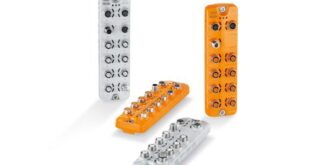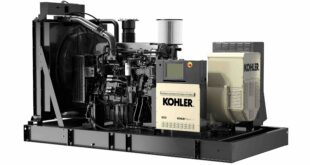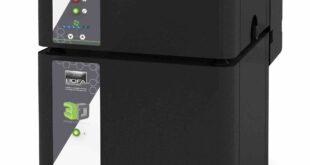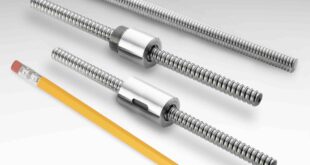Developing gas reaction experimental research apparatus for academia, DarbyTech needed a valve system that could handle both methane and ammonia.
The valve manifold system also had to achieve multi-channel mixing of these gases, and scalable gas distribution options were also required for system expansion potential. DarbyTech turned to Bürkert’s engineers to provide the right valve solution.
Hydrogen (H2) could have a key role to play in the world’s future sustainable energy mix, however, a challenge remains in cleanly generating the gas in sufficient volumes. Hydrogen production techniques are an academic focus, and DarbyTech has just launched the first university lab-scale apparatus for training and research at undergraduate as well as post-graduate level. The Base ModAppH2 apparatus can be used to perform two independent, single-stage, chemical reactions, namely Ammonia Decomposition (A potential H2 production method) and Flameless Methane Combustion (A reaction currently used in industry).
Identifying the right seal and valve combination
To simplify the students’ learning process in the lab, an important feature of DarbyTech’s design is the use of just a single set of valves to handle both ammonia and methane. However, because of the way that ammonia and methane individually impact valve seals, the challenge was to identify a seal capable of handling both gases.
PTFE would be resilient enough to enable long-term use but, because of its harder composition, higher valve actuation force would be needed to achieve complete and impenetrable seal closure. DarbyTech researched across the valve market, and Bürkert was the only manufacturer that could provide a valve for the dual use of ammonia and methane. This was achieved with Bürkert’s pneumatically driven Type 8840 modular process valve cluster.
“With the Bürkert valve system, this helps the ModAppH2 achieve accurate experimental results,” says James Eyers, Prototype Design Engineer, DarbyTech. “Catalytic reactions are required to make hydrogen, and with our apparatus, you can test just a very small proportion of the catalyst in development. Thanks to the valve system, by accurately controlling the gases and measuring the variation, universities can optimise catalyst development.”

Feed-through manifold enables effective gas mixing
The ModAppH2 has been designed in conjunction with a local university to meet required aspects of the curriculum. For masters and PhD-level research, it was also important that the apparatus precisely mixed the gases ahead of the catalytic reaction stage. Bürkert’s process valve cluster enabled this, thanks to the feed-through design of the main distribution manifold. This provided an open loop system required to achieve the mix, unlike many alternative valve system manifold designs investigated by DarbyTech that were ‘dead ended’.
To enable universities to scale up research and teaching opportunities, the apparatus enables modular expansion. To achieve steam methane reforming, a significant mode of hydrogen production, an add-on module is in development, enhancing both the breadth and complexity of research. Membrane operation and absorption to separate gases will also be offered as an extra option. Bürkert’s modular valve cluster provides this flexibility for the made-to-order apparatus, offering various configurations of valves and manifolds, including distributing, collecting, mixing, and feeding options.
Fast and simple valve system installation was also required to facilitate flexible, made-to-order builds. With no piping required between the valves, Bürkert‘s system helped achieve this, along with the ability to integrate quickly wider components such as control valves and sensors if required. This enables DarbyTech to provide complete apparatus to a university, including all learning materials and a clear description of learning outcomes that can be achieved.
Within the university lab, the apparatus footprint was also a key consideration. The ModAppH2 had to fit within a single, standard-bay fume cupboard, while even with the add-on modules, the apparatus had to fit within a double-bay cupboard. The compact dimensions of the Type 8840 valve cluster have aided small apparatus design overall. As only three of the four-valve manifold locations are occupied, this also extends scalability for university labs.
“Another key reason we decided to partner with Bürkert was because of the confidence their engineers gave us following the initial meetings,” says James. “It’s a complex project, so as well as being able to offer the physical solution, understanding that Bürkert has the experience and expertise to guide us through the valve manifold selection process was very important.”
Taking a year from the design stage to project delivery, DarbyTech’s ModAppH2 is now available to academic institutions in the UK and around the world providing a unique addition to their established educational and training products across the chemical process operations in the oil and gas, petrochemical and energy sectors.
DarbyTech equipment supports applied learning for students by developing confidence and providing multiple learning outcomes across a variety of areas. This includes process and industrial operations, production, safety, electrical, instrumentation, control systems, mechanical and chemical engineering subject disciplines.
 Engineer News Network The ultimate online news and information resource for today’s engineer
Engineer News Network The ultimate online news and information resource for today’s engineer





